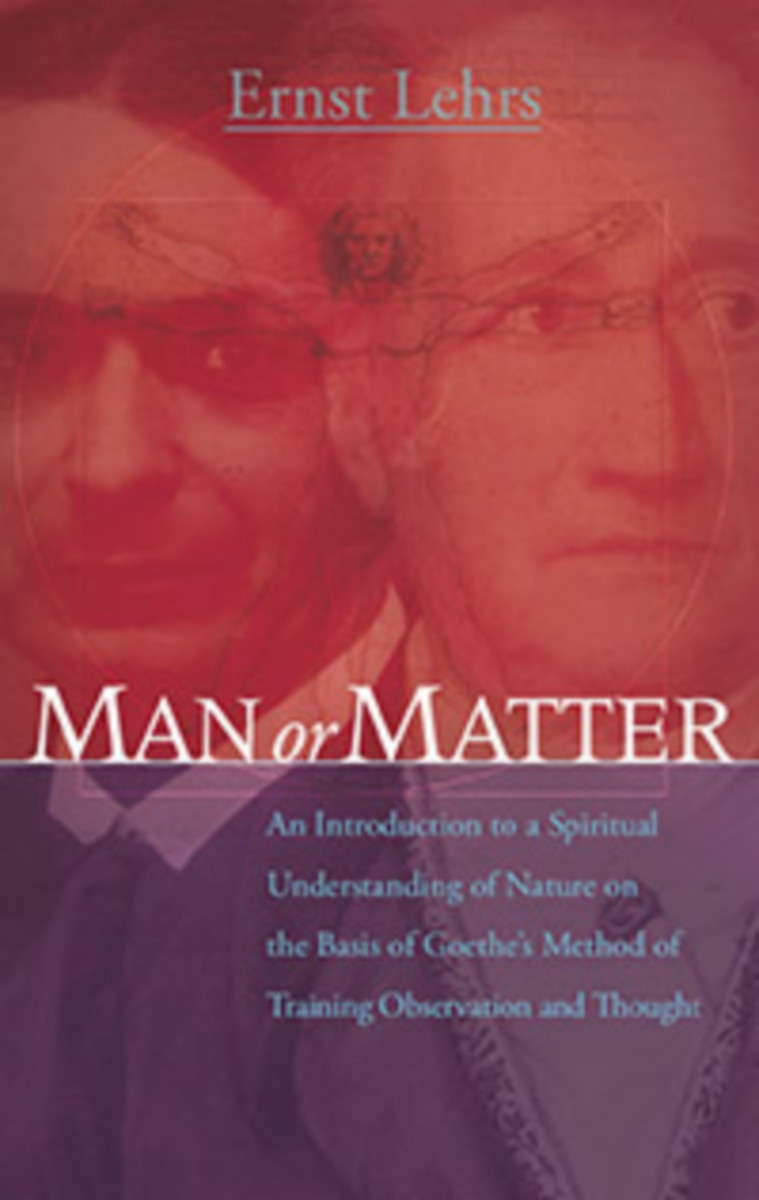Man or Matter Edition 3 3rd Edition
Introduction to a Spiritual Understanding of Nature on the Basis of Goethe’s Method of Training Observation and Thought
- Publisher
Rudolf Steiner Press - Published
20th January 2014 - ISBN 9781855843899
- Language English
- Pages 560 pp.
“‘What is science?’ . . . It is a pity the work of Dr. Rudolf Steiner has been overlooked in this respect. Probably the most consistent answer apart from Steiner’s is that of Sir Karl Popper. The object appears to be to find a foolproof criterion that distinguishes genuine scientific statements from others. However, science need not be seen as a system but rather as the activity of scientists. Steiner’s approach takes into account the process of cognition of the researcher, and in particular allows for the evolution of that process. A rigidly conceived scientific method, fixed for all time, may easily become outmoded.” — Nick Thomas (from the book)
In this third, enlarged edition of Lehrs’ classic study, the reader is led, step by step, to a spiritual-scientific method of investigation. The author demonstrates how one can transcend the boundaries of the physical world to the metaphysical origins of nature and humankind. This is a pioneering new method of training the mind and eye, as well as other human senses, leading to a transformation from our modern “on-looking” consciousness to a new kind of “participative” consciousness.
The beginnings of this method were formulated by Goethe (1749–1832) more than 200 years ago, but his contemporaries offered little in the way of fertile ground for his ideas. It was Rudolf Steiner who recognized the significance of “Goetheanism” for the future development of not only science, but also human culture in general, and who developed Goethe’s work in modern times.
Man or Matter contains the systematic results of the author’s work with the methods of Goethe and Steiner (whom he knew personally). In this unique study, Lehrs addresses himself to anyone—with or without a specialized scientific training—concerned with developing the human power of cognition in the present time.
“Once a being has recognized itself as a product of evolution, it immediately ceases to be that and nothing more. With its very first act of self-knowledge, it transcends its previous limits and must in future rely on its own conscious actions for the carrying on of its development.” — Ernst Lehrs
This revised edition was edited by Nick Thomas and Peter Bortoft.
C O N T E N T S:
Editor’s Note
Preface to the 2nd Edition
Preface to the 1st Edition
Introductory
PART ONE: SCIENCE AT THE THRESHOLD
1. Where Do We Stand Today?
2. The Birth of the Onlooker in Man
3. The Onlooker’s Philosophic Malady
4. The Country that Is Not Ours
PART TWO: GOETHEANISM—WHENCE AND WHITHER?
5. The Adventure of Reason
6. “Always Stand by Form”
7. Except We Become . . .
8. Dynamics versus Kinetics
9. Pro levitate
10. Space and Counter-space
11. Physical Substances as Part of Nature’s Alphabet
12. The Fourth State of Matter
13. “Radiant Matter”
14. Colours as “Deeds and Sufferings of Light”
15. Seeing as “Deed”—I
16. Seeing as “Deed”—II
17. Optics of the Doer
18. The Spectrum as a Script of the Spirit
PART THREE: TOWARDS A NEW COSMOSOPHY
19. The Country in Which Man Is not a Stranger
20. Pro anima
21. Know Thyself
PROSPECT: THE CREATIVE POWERS IN NATURE
Appendix 1. Thomas Traherne
Appendix 2. Aristotle and Galileo
Appendix 3. Goethe, Faraday, and Mathematics
Appendix 4. Newton’s Re-interpretation of Kepler’s Third Law
Notes
Index
Ernst Lehrs
Ernst Lehrs (1894–1979) was born in Berlin. Having fought in World War I, he studied science and graduated with a PhD in 1923. He became a senior teacher at the first Waldorf school in Stuttgart, Germany, and in 1935 moved to The Netherlands, where he worked as a teacher, before moving to Britain as a Jewish refugee from the Nazis. In 1952 he returned to Germany and worked as a lecturer at the newly established course in anthroposophic special education in Eckwälden, where he remained until his death.


